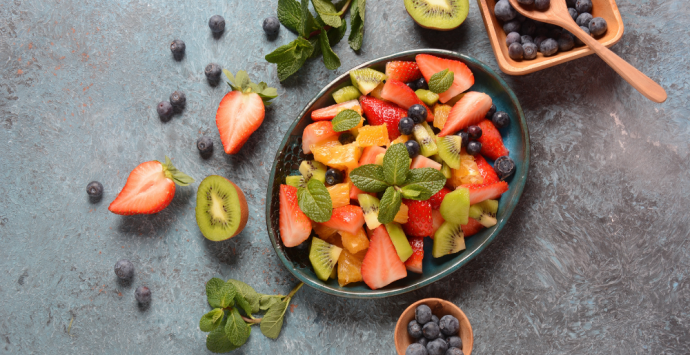
It’s 3pm and suddenly you’re hanging for something sweet for an afternoon pick-me-up. The thought of munching on a bland celery stick or carrot is far from desirable, so you instead you reach for candy, cookies or cake. Sound familiar?
Sugar addiction is real. In some studies, it has even been viewed as a substance that’s highly addictive leading to abuse. ‘Food addiction’ is the term coined for brain pathways activating feel-good neurotransmitters such as opioids and dopamine in response to consuming sweet and sugary foods. Cut out these rewards and you’re left with the aftermath of addiction: bingeing, withdrawal and cravings.
The sugar industry is a booming business and is rising in prominence in the Western diet. The food manufacturers that develop and market products stocking your supermarket shelves are clever and know that adding sugar – among other additives such as fat, sodium and preservatives – will likely have you headed back to buy more.
Further, the correlation between unhealthy eating and the rise of illnesses such as heart disease, diabetes, mood and behavioural disorders, cancer and allergies can’t be coincidental, impacting not only the health of many but also costing the global public health system billions of dollars.
Now that we’ve delivered the bad news, we have good news for sugar addicts! Teaming up with qualified Nutritionists and Naturopaths, we have developed a laundry list of reasons why you’re salivating for sweets as well as practical ways you can alleviate and overcome your cravings.
Are you ready to put that doughnut down and make some positive changes? #sugaraddictsunite
Problem 1: You’re not eating enough food
What? Yes, you read that right. Many sugar addicts lack a balanced diet of fresh food, in particular, protein.
Clinical Nutritionist Alexandra Handreck offers great advice, “Ensure each meal of the day is rich in fibre, quality fats, complex carbohydrates and protein. This will keep you sustained for longer and will prevent blood sugar drops in between meal times.”
For meal suggestions, Alexandra recommends a green salad with roasted sweet potato, poached chicken or a tin of salmon, olives and a drizzle of olive oil finished up with fresh lemon juice.
“A hearty bowl of veggie-packed soup with beans or lentils with a side of sourdough smeared with avocado will also do it.”
If you’re a vegetarian consider other sources of protein include eggs, yogurt, nuts, seeds, beans and lentils.

Problem 2: You’re not getting enough sleep
This one can be a bit of a no-brainer, especially for the night owls who watch late night movies or scroll through their Facebook feed for hours on end.
Alexandra says, “Getting adequate sleep helps to regulate the hormones that control our appetites. When we don’t get enough sleep, this balance becomes interrupted and the body releases the nasty ‘ghrelin’ hormone that stimulates our hunger for sugary and refined carbohydrate-rich foods.”
Aim to get 6-8 hours of sleep every night and learn to switch off stimulating devices and distractions that may hinder your ability to get a proper night’s sleep.
Problem 3: You’re not exercising enough
Sadly, 60 percent of Australian adults do less than the recommended 30 minutes of moderate exercise daily. Sedentary lifestyles not only lead to chronic disease but also impacts insulin levels.
“Exercise increases the bodies sensitivity to insulin, meaning that it helps to regulate blood sugar levels,” explains Naturopath Karah McLaren. “Exercise increases the body’s ability to transport glucose into the muscles to be stored for later use, thus reducing the highs and lows of blood sugar levels.”
With stress levels at an all-time high among most Australians, it makes sense to make time for regular physical activity that supports the body’s stress response and reduces cortisol levels. If the idea of hitting the pavement for a jog bores you to death, find an activity you enjoy such as walking the dog, swimming or a pilates class.

Problem 4: You’re too stressed
Tying in with all of the above, it’s likely that you’re eating sugar and starchy carbohydrates in a response to stress. Chronic stress can trigger a blood sugar imbalance and even affect your hormones and digestive health. It can lead to emotional eating that releases dopamine, signalling ‘happy’ feelings that later drop away when hungry or stressed again.
To combat this vicious cycle, Nicky Wood of Wise Healthy Living suggests getting into dopamine releasing activities that don’t require food for your mood.
“Any adventure activities, exercise, comedy shows, feel-good experiences like arts and crafts – whatever floats your boat!”
Taking Magnesium and B vitamins can also help as they increase insulin resistance and restore optimal levels of nutrients that stops cravings in their tracks. Rather than relying on sheer willpower, taking supplements can help change the biochemistry in your body.
A chromium supplement is also great to balance your blood sugar naturally and even enhance the effectiveness of anti-diabetic medications.
Problem 5: You have a hormonal imbalance
If you’re often tired, stressed and moody, then there may be more to your sugar cravings than just a love affair with chocolate. Besides insulin and cortisol, there may be other hormonal imbalances such as the thyroid and progesterone that come into play.
Nutritionist Annalise Maddrell says the only way to find out is to dig a little deeper.
“If your cravings are persistent, occurring at the same time and are for one particular food, then consult your local GP or Nutritionist to get to the bottom of it. It could just be your hormones.”
Watching stimulants such as caffeine and alcohol is also important as they can produce adrenaline, sending your hormonal levels even more out of whack. Common culprits like coffee, wine and beer contain a high amount of sugar giving an instant rush of energy but a slump later on.
“If you do feel a craving or desire coming on, arm yourself with low or no sugar alternatives. Go for nuts, a piece of fruit, hummus or a green juice to keep you going instead,” Annalise suggests.






















